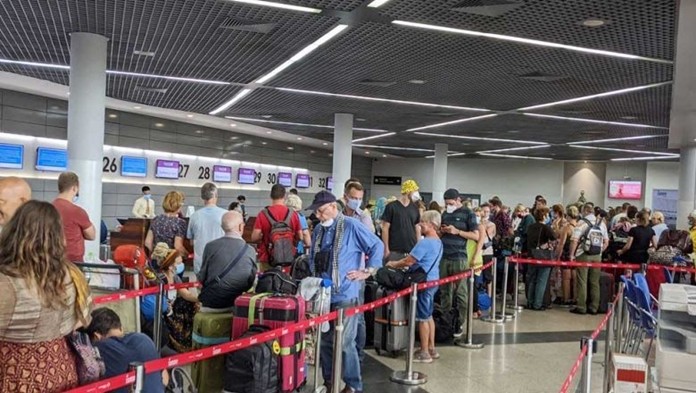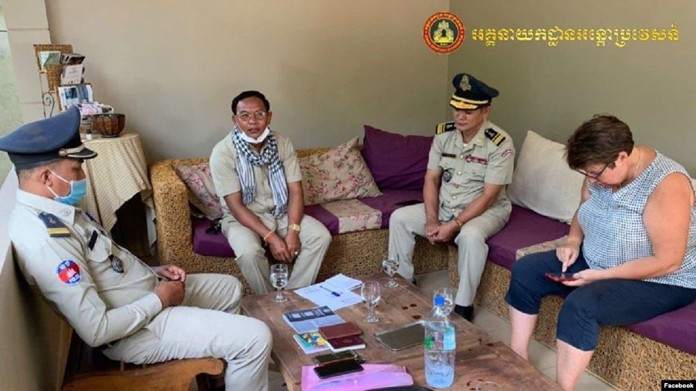
The long-awaited draft proposals to reform Cambodian immigration and visa regulations, scheduled to become effective early next year, saw a chink of light yesterday when Top Sopheak, the tourism minister, addressed the press in Phnom Penh. In a nutshell, it appears the rules are likely to become more bureaucratic and expensive for the consumer, whilst offering perks to long stay tourists and expats. There are some important similarities with, and differences from, the plight of visitors to Thailand.
Please Support Pattaya Mail
At present, both countries have banned leisure tourists because of the Covid-19 crisis and land borders remain closed except for the transport of goods and a limited exit-entry facility for Cambodian guest workers with employment contracts in Thailand. Looking forward to a post Cobid-19 world, minister Sopheak said that a Special Tourist Policy (STP) would be introduced to boost tourism and investment at the same time.Another acronym to remember, folks.

He explained that the Cambodian authorities wanted to boost repeat and quality tourism and investors at one and the same time by offering long-term visas to groups such as retirees, business people and those with families in the country. The minister was not specific, but appeared to suggest that a new visa type, longer than a year, might be on offer. Thailand already has such a visa, known as Elite, which offers holders a 5-20 years multiple-entry visa for individuals or families in exchange for an initial cash deposit of between 500,000 – 2,400,000 baht or US$16,000 – US$76,000. The Thai Elite has no age restrictions and can be utilized by retirees or employees as does not require a work permit for limited business responsibilities.
Minister Sopheak also said that the government was likely to allow foreigners to buy freehold land as well as condominium units above the first floor of a building. Again no details, but there was a hint that the purchase and investment might need to be in specially-designated areas known as Great Tourist Zones. This is being widely seen as a nod and a wink to potential Chinese investors who outnumber any other nationality. Ownership of land by foreigners is banned in Thailand, although purchase of condominium units by sole ownership or by establishment of a Thai company is popular.
Cambodian immigration rules are prone to frequent amendment at the level of detail. Even during the coronavirus pandemic, that impressive Facebook gem Cambodia Visa and Work Permit Group is kept busy answering multiple, daily queries about entry to the country which requires local embassy visa approval similar to the Thai system. Earlier this year, the Cambodian immigration authority introduced a compulsory online registration of most foreigners – the Foreigners Present on Cambodia System – which many believe is more effective at monitoring aliens than the Thai method known as “90 days address reporting”.
It’s becoming clear that future Cambodian immigration policy will become ever more sophisticated using new technology to both issue visas and track foreigners. The country also appears to be pivoting towards attracting longer-term and wealthy visitors rather than relying mostly on short term vacationers and charter-plane groups. Expect too more documentation and more expense for those thinking of settling in Cambodia long term. The oft-heard argument that Cambodian immigration bureaucracy is so much easier than Thailand’s, and a good reason to move, could become redundant. Sooner rather than later.
 |
 |
 |





